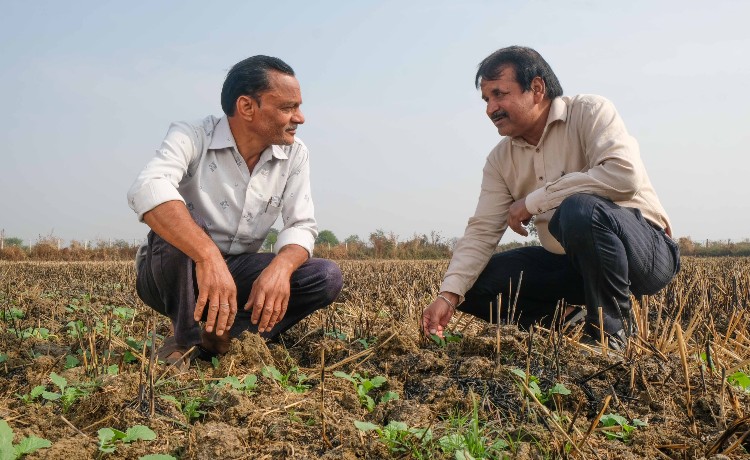A third of the world's soil is moderately to highly degraded, threatening global food supplies, increasing carbon emissions and foreshadowing mass migration. In India, soil erosion and degradation are widespread across the largely agrarian nation - putting our food security, and the livelihood of millions of farmers, at threat. A change in farming practices has never been more urgent.
But the good news is that, because the problem is largely driven by unsustainable farming practices, catalyzed by the Green Revolution, it is still possible to turn things around – harnessing farmers, both the victims and perpetrators, to transform farming practices, enrich soil health and moisture, and improve yields along the way.
The following strategies act as a crucial guide, for both farmers, and civil society organisations working in agriculture, to prioritise soil health and generate a more sustainable agricultural sector for future generations.
• Soil Test Based Nutrient Application – with 60% of crop yields dependent on soil fertility, soil is a crucial resource that needs to be carefully managed. By performing soil tests on a regular basis, farmers can determine the soil's nutrient level and pH content. Armed with this information, they can define the quantity of fertilizer, and the type needed, to improve the soil on their farms. This helps minimize expenditure on inputs and avoids over-fertilisation, which ultimately leads to soil degradation.
• Increase Organic Contents – In normal agricultural soil, the minimum organic content should be between 3–6 percent, but in India, it is often below 0.5%. Organic content can be increased by mulching in crop and weed residues, planting cover crops, adopting appropriate crop rotation, and applying green manure, vermicompost or biogas slurry on crops.
• Improve Practices to Optimise Soil Structure - The structure of the soil can be easily damaged by harmful operations such as heavy traffic in wet conditions or ploughing when the soil is too plastic. To optimize soil structure and facilitate porosity, and air and water flow through soil, farmers can minimise tillage and disturbances to reduce compaction and other negative impacts on soil structure.
• Adopt Organic or Natural Farming - Techniques used by organic and natural farmers can help stop soil health degradation, and can even restore soil health in previously degraded soils, because they replenish soil organic carbon and preserve underground biodiversity. Natural farming, once prevalent in traditional agriculture in India, provides a low-cost alternative to organic farming, with farmers returning to the roots of Indian agriculture, which employed more sustainable practices.
• Enhance Efficiency of Water Resources – excessive use of water, via flood irrigation (rampant in India) significantly increases the root-zone salinity, soil sodicity, and nutrient leaching from soils to the underlying water aquifers – directly impacting both the quality of soil and groundwater. Flood irrigation also impacts the live micro-organisms in the soil which directly benefit crops.
The characteristics of soils can be changed with good management. It is therefore vital for farmers to ensure that management practices do not contribute to the decline of the soil but rather, enhance it. Because soil is a priceless, and a non-renewable resource that is home to thousands of animals, plants and other important organisms that play a crucial role in growing the food, feed, fibre and fuel that we as a country so desperately rely upon.
We have the answers, and India’s hardworking, humble farmers – the lynchpins in India’s soil story - now need our support to make the necessary changes to turn the state of soil in India, around.
- This story was originally posted on Krishi Jagran media platform
https://krishijagran.com/featured/indian-farmers-the-lynchpin-to-good-soil-health/







0 Comment